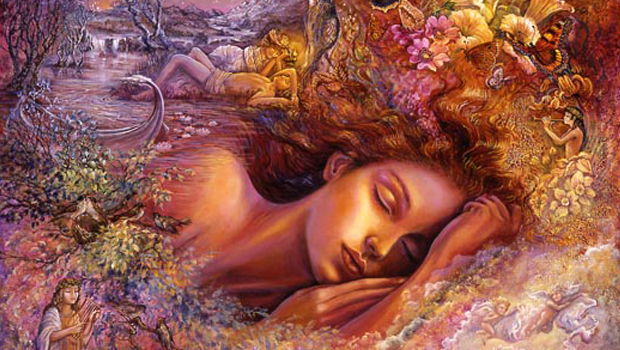
It’s amazing to me that in spite of the advancements in science and technology, we still can’t definitively answer the simple question: Why do we sleep?
Were you aware that we still don’t know the answer? The obvious answer is, “To recharge.” And that seems to be the case. We’re tired, we sleep, we wake up refreshed and ready for another day. However, physiologically speaking, we don’t know why sleep is required. We observe the body undergoing several processes overnight, but we don’t know why these need to occur during sleep instead of, say, relaxing while awake.
There are many theories out there (click here to read about them), each with its own supporting arguments. Some are convincing, some are not. All of them are still theories. We don’t understand something we spend 1/3 of our lives doing.
This study just came out two months ago. Its conclusion is that we need to sleep in order to clear our brains of the gunk they accumulate during the day. The central nervous system produces potentially neurotoxic waste products during its normal waking function. When we sleep, our brain cells shrink, better allowing our cerebral spinal fluid to flow through our brains and clear out those neurotoxins.
That’s the layman’s description of the study. I would go into more detail, except: 1. You probably wouldn’t understand it; 2. I don’t understand it.
The problem with all of the theories on sleep is that they describe functions that occur during sleep, not why we need to sleep, i.e. be unconscious, during those processes. Yes, reduced brain activity allows some of them to take place. But why do we need to be unconscious? Why couldn’t the unconscious state of sleep be just a period of lower physical activity like sitting down for the night, or lying in bed but not actually losing consciousness?
I believe we sleep to remove our conscious focus from this physical reality, to reconnect with the wider, non-physical reality from which we incarnated, in order to review our day’s experiences and receive guidance for the rest of our physical incarnation.
Think of it this way: you go to sleep, your consciousness is free from your body, you go to your spiritual guides and say, “Wow, what a day! Did you see all that shit?” They respond, “Yeah that was pretty intense. Let’s talk about what you need to do tomorrow, and I think you could have done better at _____ and _____.” Then through different dream scenarios you create together, you learn new things, cement the things you learned in the previous day, and prepare yourself for the days ahead. Of course when you wake up, all of this new information is not consciously available. It’s in your subconscious, and you may or may not use it. This is a very simplified way of describing it but I think it elucidates why I think we need sleep. There’s no way to accurately describe exactly what happens because our physical minds are incapable of comprehending it. And as you are awake while reading this, and as I am awake while writing it, we have our blinders on fully.
Except for those who are skilled in the art of lucid dreaming, people generally don’t remember their night time experiences but rarely, and even those are difficult to decipher and apply to our physical lives. When we sleep, especially in the deeper phases, the physical blinders we have on during the waking hours come off and we return to our natural, non-physical state. As such, it’s difficult or impossible to translate many of the experiences into our physically conscious existence. That’s why a lot of times we’ll wake up from a dream and although it will be very fresh in our memories, when we try to understand it, it’s just a jumbled mess of swirling images and sounds and unrelated events that don’t translate well, or at all.
You’ve undoubtedly heard of people who have received very vivid, very real guidance in their dreams and have applied it to their physical realities with great success. Maybe you’ve experienced this yourself. Some (maybe all?) of the most amazing inventions and artistic creations have been conceived of in the dream state.
The melody of “Yesterday” came to Paul McCartney in a dream. The idea for Google came to Larry Page in a dream. The theory of relativity came to Einstein in a dream. Many of Salvador Dali’s creations came to him in dreams. These are just a few of an unending number of examples. Read this article for more.
When we sleep, our conscious focus is removed from physical reality. It drifts away to the other, non-physical realms, where the constraints we deal with on a daily basis don’t exist. Our consciousness is free to roam, to explore, to create. When we bring those creations back to our waking lives consciously or subconsciously, we can manifest brilliant things in this reality.
In the words of Mellen-Thomas Benedict, “Human beings are already legendary throughout the cosmos of consciousness…We are legendary dreamers.”
That’s why we sleep: to dream, to create, to learn, to grow.

Comments
3 responses to “Why Do We Sleep?”
[…] Overload The Limitations of Science Responsibility The Danger of Spirituality The World As a Dog Sleep You Are the […]
[…] Except for those who are skilled in the art of lucid dreaming, people generally don’t remember the… […]
[…] but because of this experiment. And when I smoke immediately before lying down for the night to reconnect with the non-physical reality, it’s a real pain in the ass to get up when the alarm goes off. And hitting the 15-minute […]